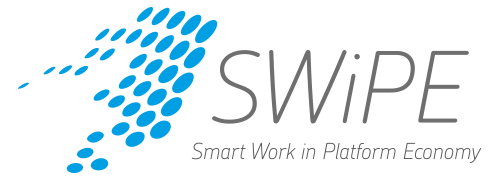Etla has published a new book Finnish Economic Growth which is edited by professor Seppo Honkapohja and secretary of state Vesa Vihriälä. The book contains a separate chapter Datamarkkinat ja digitaaliset alustat (Data markets and digital platforms) in which SWiPE researcher Petri Rouvinen and Etla’s researcher Heli Koski analyse the specific characteristics and role of the data as a commodity and a production factor.
Thebook aims to clarify the conditions for economic growth in Finland over the nearest 10 to 15 years. In particular, the authors raise the importance of new knowledge and the underlying research. On the basis of economic research, a prominent group of economists undergoes key economic growth factors and estimates the position they are in today in Finland.
In the fifth chapter of the book, Petri Rouvinen and Heli Koski examine the data as a commodity and a production factor. They state, among other things, that the digital production does not have the same capacity constraints as the manufacture of tangible products. From the point of view of economic growth, digital platforms will enable a broad spectrum of decentralised ideas to be quickly utilized in various and unforeseen contexts.
– The data differs from a typical economic asset – its use does not reduce the availability of data. Data does not run out in use, Rouvinen and Koski point out in the book.
They also see that the underdevelopment of data may in the long term undermine economic growth. From the point of view of economic growth, data should be produced as widely as possible and shared as openly as possible. In the creation of value, data is becoming a major competitive factor and source of growth. Petri Rouvinen and Heli Koski predict, among other things, that the suspension of the power of platform organisations is emerging as one of the key social issues.
The artificial intelligence and the data economy are seen in the book by writers to give new opportunities at the same time as it is stated that their effective exploitation should be addressed. Seppo Honkapohja and Vesa Vihriälä, the editors of the book, raise the key policy challenges of the near term, among other things, to strengthen education and research, increase labour immigration and improve the ability of the labour market to adapt to shocks.
Read more about the book on Etla’s website.
